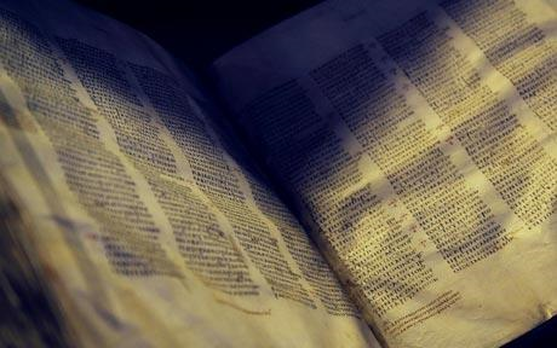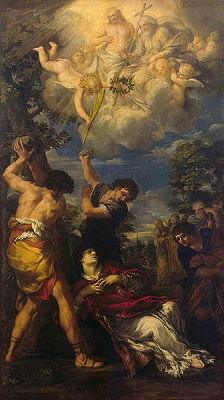2020 Pennsylvania Ave. NW #241
Washington, D.C. 20006
www.persecution.org | E-mail: icc@persecution.org
Todd Daniels, Regional Manager for the Middle East, and ICC's Egypt Representatives
09/16/2015
Washington, D.C.
International Christian Concern
When Medhat Ishak attempted to hand a Bible to a group of shoppers in suburban Cairo, insulting a religion was not his intention. But ever since President Anwar Sadat issued the law regarding the contempt of religion in the 1970s, it has been used by the government as a punishment tool for people with different beliefs whenever they cross an unwritten line. And sometimes crossing the line is when you try to share your Holy Book with another, as what happened with Medhat Ishak.
On August 7, Medhat, a 34 year-old Christian man was at the Mall of Arabia, in 6th of OctoberCity, in Cairo, passing out Bibles to Christians who were shopping in the mall.
Medhat noticed a 28 year-old man, Haitham Sabry, who was accompanied by two unveiled women. Medhat assumed that they were Christians because in Egypt the Muslim women are usually veiled.
Medhat approached the three and attempted to give them a Bible. This act alone was enough for him to be arrested and charged with one of these "elastic charges," as some human rights activists describe Egypt's blasphemy and contempt of religion laws. The laws lack a clear definition and it does not take much to accuse someone of this charge.
Haitham called the mall security and they took Medhat to the nearest police station where they accused him of evangelism or proselytizing, something for which "there is no such criminal charge," Rafik Rafaat one of the lawyers working on Medhat's case told International Christian Concern (ICC). "Distributing Bibles or even promoting Christianity does not constitute contempt of religions," Rafaat continued.
The charges filed against Medhat accused him of handing out religious books that incite sectarian strife and being a part of a group that evangelizes.
The next day, Medhat was taken to the DA office where the prosecution changed the charge to the more flexible charge. They accused him of contempt of religion based on Article 198, paragraph (و) of the penal code, and also charged him with the distribution of religious books to attract non-Christians and detained him for 15 days.
Medhat who is originally from Beni Ebied village, Abu Qurqas, El Minya governorate went to Cairo to study at the faculty of Arts in Ain Shams University, his brother Ibrahim Ishak told ICC.
"The charge against Medhat was changed from the distribution of religious books and proselytizing to contempt of Islamic religion," Mounir Samy Girgis, another one of Medhat's lawyers told ICC. "I read all the case papers and I can't find any expression from Medaht that shows the contempt of Islam, or against the prophet Mohammed, or against al-Azhar, or against any Muslim."
Pastor Nabil Samuel, pastor of the Evangelical Church in Beni Ebied, also expressed frustration regarding the charges against Medhat. He said, "He didn't talk about Islam or prophets or anything that deserves for him to be accused of blasphemy. He was handing out Bibles to Christians in the mall. Does handing out Bibles become a crime and the Egyptian law criminalizes it? Where is the freedom of religion provided for in the Constitution?"
While in prison, Medhat has been subjected to physical abuse at the hands of other prisoners and with the incitement of the guards, Nasser Gamil, Medhat's brother-in-law, told ICC
"Medhat told us that he is being beaten by the other prisoners in the detention [center] and that there is no protection at all for him, but on the contrary the guards are telling the other prisoners that Medhat's charge is contempt of the Islamic religion, encouraging them to torture him," Gamil said.
On August 24, The Misdemeanor Court of the 6th of October City extended the detention of Medhat for another 15 days, a decision that Refaat commented on, saying, "I don't know how the court extended his detention for another 15 days, something that doesn't happen except in extreme cases. Medhat didn't commit a murder nor was he dealing in drugs to justify him being treated this way.
However, this is not the first time that someone accused of this charge has been treated this way, but it is the standard for contempt in religion cases, as ICC has documented inmultiple cases in this year alone.
Ishak Ibrahim, a researcher on religious freedoms at the Egyptian Initiative for Personal Rights (EIPR) told ICC, "The Security Services in Egypt imagine that any activity for religious minorities, whether this activity was expressing their opinion or their identity is against the law and the responsibility of the Security Services is to confront these religious minorities and defend the Sunni Islam."
On September 7, the 6th of October Misdemeanor Court ordered the release of Medhat on bail of 300 Egyptian Pounds ($38 USD), and Medhat was released from the police station the following day at nearly 11:00 pm.
The case against Medhat is still ongoing and the sentence in such cases could range from six months to five years of imprisonment.
"We feel that we live in a religious country, not in a civil country because the religion dominates the law here," Ihab Ramzy, a legal adviser told ICC. "In the case of Medhat he didn't defame Islam, but they charged him with contempt of Islam. The main purpose of that is to show to all that this country is an Islamic country and it is [not permissible] to preach Christianity in the Islamic state. This is extremely dangerous as long as it is religious thought that rules us, not the law," he continued.
As Medhat awaits the final decision in his case, he may prove yet again that the the contempt of religion charge remains a flexible punishment for the authorities to use against people who dare to share their beliefs with others.
The Egyptian government and legal system have many steps still to take to protect the basic rights of all Egyptians, and the pardon of Medhat is one small step that would move the country in the right direction.
For interviews, contact Olivia Miller, Communications Coordinator: press@persecution.org
# # #
You are free to disseminate this news story. We request that you reference International Christian Concern (ICC) and include our web address, www.persecution.org. ICC is a Washington D.C.-based human rights organization that exists to help persecuted Christians worldwide. ICC provides Awareness, Advocacy, and Assistance to the worldwide persecuted Church. For additional information or for an interview, contact ICC at 800-422-5441.



 RSS Feed
RSS Feed